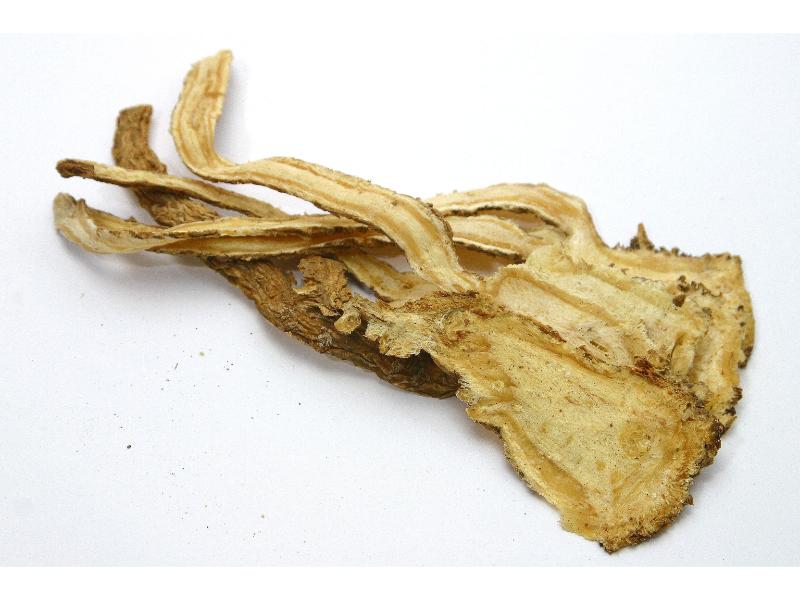Search in medicinals
Angelicae Sinensis Radix
Chinese angelica
当归 〔當歸〕 dāng guī

Alternate English names: tangkuei [root]
Alternate Chinese names: 薜 xuē; 山蕲 shān qí; 白蕲 bái qí; 文无 wén wú
Kingdom: Plant
Origin in PRC Pharmacopoeia: Angelica sinensis (Oliv.) Diels. (PRC Pharmacopoeia)
Origin in unofficial sources: Angelica sinensis (Oliv.) Diels*; Angelica acutiloba (Sieb. et Zucc.) Kitag.; Levisticum officinale Koch; Ligusticum glaucescens Franch.
Use: Medicinal and alimentary
Category: Supplementing agents / Blood-supplementing agents
Properties: Sweet, acrid; warm.
Channel entry: Liver, heart, and spleen channels.
Actions and indications:
- Supplements the blood: Heart-liver blood vacuity.
- Quickens the blood and relieves pain: Menstrual irregularities, menstrual pain, amenorrhea; abdominal pain due to vacuity cold; pain due to static blood; injury from knocks and falls; impediment pain; numbness and tingling; welling- and flat-abscesses and
sore s. - Moistens the intestines: Constipation due to blood vacuity with
intestinal dryness .
Dosage and method: Oral: 5–15g in decoctions. For oral use, it may also be steeped in liquor, boiled to make a paste, or put into pills and powders. For external applications, it is often made into a paste.
Warnings: Contraindicated in exuberant dampness, center fullness, and diarrhea. Dāng guī should be used with care in conjunction with the drug warfarin (Coumadin®), as some reports suggest that their combination can produce an increased risk of bleeding.
Notes: blood-breaking,
while other texts use the more moderate term
blood-quickening.
Processing with wine increases the blood-quickening stasis-transforming action, the blood-supplementing action, and menses-regulating pain-relieving effect.
Product description: The main root is short, with ten or more finer roots branching from its extremity, each of which is more or less the same length. The entire root is about 15–25 cm long and about 2–3.5 cm thick at the head. The outer surface is middle brown, with irregular wrinkles. The flesh is yellow or pale brown. The decocting pieces are transverse, oblique, or longitudinal slices about 0.5–1 mm thick, and pale yellow on the cross section. The branch roots are cut in transverse or oblique slices that have irregular margins. Annular markings are clear on the transverse slices.
Quality: A large, fat main root, pale flesh, and strong smell are the signs of superior quality.
Production area: Gānsū, Yúnnán, Shǎnxī (Shaanxi), Guìzhōu, Sìchuān, and Húběi.
Etymology: The name dāng guī 当归, literally must return,
is sometimes explained as reflecting the ability of this agent to regulate qì and nourish the blood, thereby restoring their normal functions. However, the plant may a have originally been so named because in ancient times it was offered to a person going away to express the hope that they would come back.